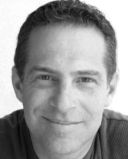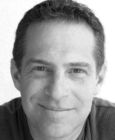 Chances are you haven't heard of some of my favorite authors: Jared Kant, Sarah Allen Benton, Lori Hope, Shannon Shy. None has written a blockbuster, nor even more than a single book. You might, in fact, have some trouble picking up a copy of their works at your local bookstore. But by providing front row access to their struggles and heroic triumphs, they have all taught, enlightened, and inspired countless readers. Each, through his or her intimate storytelling, has changed--and in many cases saved--lives. And what they've accomplished you can, as well.
Chances are you haven't heard of some of my favorite authors: Jared Kant, Sarah Allen Benton, Lori Hope, Shannon Shy. None has written a blockbuster, nor even more than a single book. You might, in fact, have some trouble picking up a copy of their works at your local bookstore. But by providing front row access to their struggles and heroic triumphs, they have all taught, enlightened, and inspired countless readers. Each, through his or her intimate storytelling, has changed--and in many cases saved--lives. And what they've accomplished you can, as well.
But wait, you say, I have no interest in writing a memoir!
No worries. The storytelling power I wish to showcase here depends not one bit on your writing skills, and predates the word processor, the advent of paper, and even the cave wall. Quite simply, it's about the transfer of personal experience--from one who has lived it to others who can learn from it--and the immense benefit for all parties involved. I'm reminded of this power as I gear up for the International OCD Foundation's first-ever national storytelling event, an evening aiming to offer "reflection, humor, and OCD education." More on that--and an invitation to join us--in a bit, but first some thoughts on the magic of storytelling.
The Power of being Shown
My favorite English teacher used to take his red pen to my essays, circle long sections of my wordy exposition, and write, "Show me; don't tell, me!" It took me years to fully appreciate this sage advice, but somewhere along the way, I came to understand what he was really saying: Bring your message to life and let me experience it--through characters I can relate to, dialogue and inner thoughts I can recognize, and scenes I can put myself into. This, I'm now convinced, is precisely what effective storytelling does, and precisely why it has the power to change lives.
Think for a minute about the most powerful book you've ever read. Next, the most powerful movie you've ever seen. Finally, the most powerful lecture you've ever heard. Did their power stem from the experiences they conveyed? I'm guessing it did. Now think about the most powerful experiences that you, yourself, have ever had--the best ones, the worst ones, those that most impacted the very course of your life. Were there lessons in them? I'm guessing there were. Could these experiences, shared with others, teach, inspire, or provide field-tested guidance? I'm certain they could.
I am not exaggerating when I say I owe my life to storytelling. Twice misdiagnosed and spiraling out of control with anxiety in the early 1990's, I was at my wits' end. I was dejected, deflated, and ready to give up all hope. But then one fateful day, I stumbled across a story, one that forever changed everything. In it, I learned, for the very first time, the truth about myself. By reading about some anonymous man's struggle to drive his car without looping it around to check for dead bodies, I recognized myself. I discovered I wasn't the only person who was a slave to his checking. I discovered there was a name for this challenge--OCD--and, more importantly, a treatment process. I got help. I got better. All because some man I'll never know decided to share his story. To show me his experience.
The Power of Showing
If there's one thing I've learned from the past four years of sharing my story, it's this: I as the storyteller get every bit as much--if not more--out of the process than those with whom I share. I suspect most anyone who's active in personal-experience outreach would agree.
There's just something profoundly cathartic about telling personal stories. In doing so, we give meaning to our own experiences, even (and especially) the very worst ones. As I've shared in this blog many times before, I am a big believer in what I call "Choosing Greater Good" motivation, a concept I developed--out of sheer necessity, really--in which I identify and pursue goals that allow me to: (a) be of service to others, and (b) enhance my own sense of purpose. Storytelling has afforded me countless opportunities to do both.
To Tell... or Not to Tell
"Do you think I should share my story?"
I'm asked this frequently by readers and others I meet in my travels. And it's always tempting to answer Yes. Truth is, though, this is a very personal decision--one that deserves a lot of careful consideration. Effective storytelling comes with responsibility. Can you do it truthfully? Constructively? Without violating anyone else's privacy? In a manner that's comfortable for you? These are all questions that only you can answer.
What I would encourage you to do is this: explore your storytelling options. The process can be as simple as sharing your experiences with a trusted friend or relative. It can be carried out with the guidance of a trained professional, through church or service groups. It can even be done anonymously through a number of online projects, including Mental Health America's RealLives program, for which I serve as a spokesperson.
And here's one more suggestion--one that requires no audience whatsoever. Tell yourself your story. Put it on paper. Type it into your computer. Maybe just sit in a quiet room and speak it out loud. This is how the magic all started for me many years ago, long before I was ready to share with anyone else.
An Invitation

I want to leave you with a personal invitation to witness storytelling in action. Please join me at the IOCDF web site this Saturday, October 16th, at 7:00 p.m. EST. Click on this link and you can watch a live stream of "OCD Stories: An Evening of Reflection, Humor, and OCD Education." I will be joined by several of the very best storytellers I know, and together we aim to show you the lessons of our experiences. Hope to see you there!




